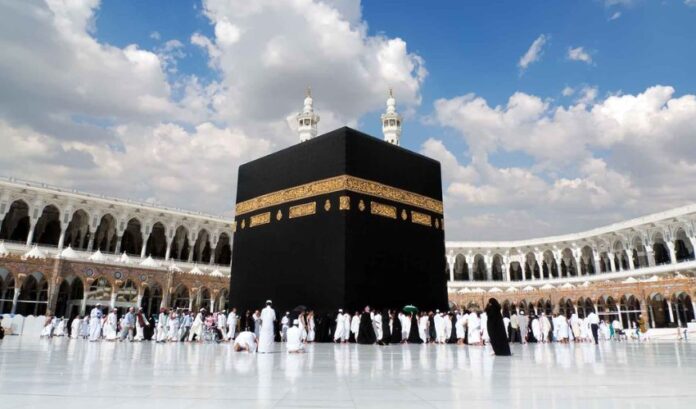The government has proposed a new measure to provide relief to low-income and middle-class citizens planning to go on Hajj.
A proposal allowing pilgrims to pay for Hajj expenses in three installments, instead of a single lump sum, has been submitted to the federal cabinet for approval.
Sources said that the proposal for recovery of expenses from Hajj pilgrims in installments is part of the government’s Hajj policy. The federal cabinet will approve this Hajj policy prepared by the Ministry of Religious Affairs.
According to sources, prospective pilgrims will have the facility to pay Rs1.1 million in three installments. Under the proposed payment structure, the prospective pilgrims would be initially required to deposit Rs200,000 to apply for Hajj. Following their selection in the lucky draw, they would then pay an additional Rs400,000, with the remaining amount to be paid before departure.
Officials from the Ministry of Religious Affairs stated that this installment plan is designed to provide financial relief to lower and middle-income groups who often face challenges in securing the full amount upfront. The Ministry emphasized that this change aims to make Hajj more accessible for these groups.
Early last month, the federal cabinet approved the Hajj Policy 2025 through a circulation summary. According to official sources, the cost of the government-sponsored Hajj package is expected to be between Rs1.75 million and Rs11.75 million.
The new policy sets a quota of 179,000 pilgrims from Pakistan, with the allocation split equally between the government and private tour operators — each receiving 89,605 slots. The policy also reserves special quotas for particular groups, including 1,000 slots under the hardship category and 300 reserved for low-income workers registered under the Employees’ Old-Age Benefits Institution (EOBI).
Next year, prospective pilgrims can choose between two duration options: a long Hajj trip spanning 38 to 42 days, or a shorter version ranging from 20 to 25 days. The new guidelines prohibit children under the age of 12 from participating in the pilgrimage.
On Thursday, the Ministry of Religious Affairs issued a new health policy for Hajj pilgrims in response to updated conditions set by the Saudi government.
According to the document, individuals with serious health issues, including cancer, heart, kidney, and respiratory diseases, will not be permitted to undertake the pilgrimage this year. All pilgrims must submit a medical certificate to confirm their eligibility. People undergoing dialysis or those suffering from heart attacks, shortness of breath, or lung diseases will be barred from participating.
Additionally, individuals with liver failure, serious neurological, or psychiatric disorders are also prohibited from going on Hajj.






